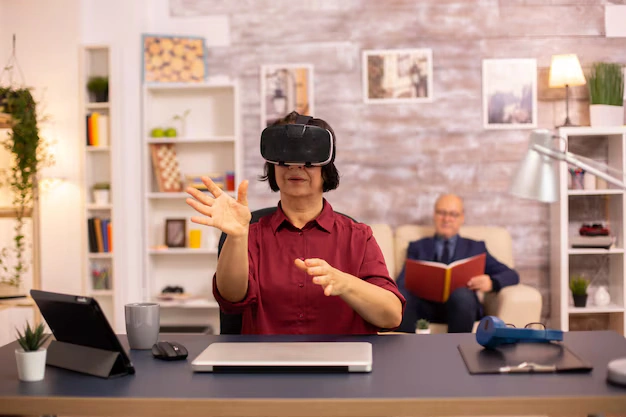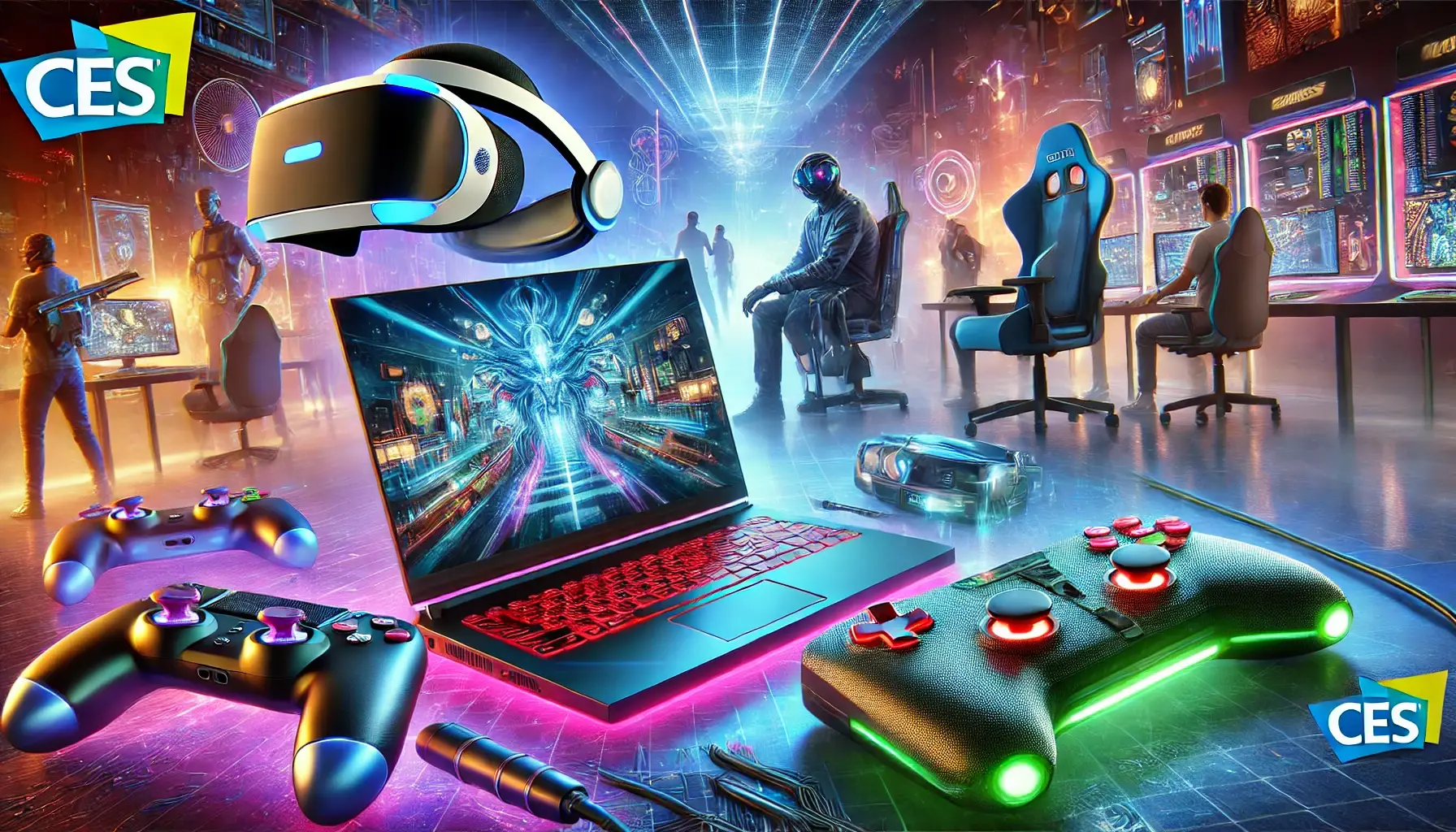Now Reading: The Best Gaming Laptops vs. Desktops: Pros and Cons
-
01
The Best Gaming Laptops vs. Desktops: Pros and Cons
The Best Gaming Laptops vs. Desktops: Pros and Cons

When it comes to choosing the best gaming setup, the debate between gaming laptops and desktops continues to spark heated discussions among gamers. Each option offers unique benefits and drawbacks, making the decision highly dependent on individual preferences, gaming needs, and budgets. In this article, we will delve deep into the pros and cons of gaming laptops and desktops to help you determine which suits your lifestyle and gaming aspirations best.
1. Portability: The Key Differentiator
One of the most significant differences between gaming laptops and desktops is portability.
Gaming Laptops
Pros:
- Designed for mobility, gaming laptops allow gamers to play virtually anywhere.
- Built-in components like the monitor, keyboard, and battery make it a self-contained gaming machine.
- Ideal for students, travelers, or anyone who moves frequently.
Cons:
- Limited to battery life, which may restrict extended gaming sessions.
- Portability often comes at the cost of reduced performance compared to desktops in the same price range.
Gaming Desktops
Pros:
- Stationary setups provide the flexibility to integrate multiple peripherals and upgrades.
- Perfect for gamers who prioritize high performance over portability.
Cons:
- Lack of portability makes them unsuitable for gamers on the go.
- Bulky and require dedicated space for the setup.
2. Performance: Power-Packed or Compact?
Performance is a critical factor for gamers who want seamless gameplay and high frame rates.
Gaming Laptops
Pros:
- Modern gaming laptops are equipped with powerful GPUs, such as NVIDIA GeForce RTX series, and processors that rival desktops.
- Optimized cooling systems allow laptops to handle demanding games.
Cons:
- Performance is often throttled to prevent overheating.
- Upgrades are limited, and parts like the GPU and CPU are usually soldered.
Gaming Desktops
Pros:
- Superior performance due to larger power supplies and better cooling systems.
- High customizability allows users to upgrade components like RAM, GPUs, and CPUs as needed.
- Excellent for running demanding AAA titles and multitasking.
Cons:
- High initial setup cost if aiming for premium performance.
- Requires additional investment in peripherals such as monitors and keyboards.
3. Price Point: Which Offers More Bang for Your Buck?
Budget plays a crucial role when deciding between a gaming laptop and a desktop.
Gaming Laptops
Pros:
- Entry-level gaming laptops are affordable and offer decent performance.
- All-in-one design eliminates the need to purchase peripherals.
Cons:
- High-end gaming laptops can be more expensive than desktops with equivalent specs.
- Limited upgrade potential can lead to higher long-term costs.
Gaming Desktops
Pros:
- Better performance-to-cost ratio, especially when building a custom PC.
- Components can be upgraded gradually, spreading out costs over time.
Cons:
- Initial investment is higher due to the need for additional peripherals.
- Requires technical knowledge or assistance for assembling and upgrading.
4. Display Options: Built-In Screens vs. External Monitors
The quality of the display significantly impacts the gaming experience.
Gaming Laptops
Pros:
- Built-in screens with high refresh rates and resolutions like 1080p, 1440p, or even 4K.
- Portable and self-contained for gaming on the go.
Cons:
- Smaller screen sizes (typically 15-17 inches) may feel restrictive for some gamers.
- Limited options for multiple-monitor setups.
Gaming Desktops
Pros:
- Ability to connect to larger screens and multiple monitors for an immersive experience.
- Support for ultrawide monitors and higher resolutions.
Cons:
- Monitors are an additional expense and reduce portability.
- Require ample desk space for multi-monitor setups.
5. Longevity and Durability
The lifespan of your gaming machine depends on how well it can handle evolving technology and gaming demands.
Gaming Laptops
Pros:
- Compact design protects internal components from external damage.
- Ideal for casual gamers who don’t plan to upgrade frequently.
Cons:
- Difficult to repair and upgrade, leading to shorter usable lifespans.
- Higher risk of overheating reduces long-term durability.
Gaming Desktops
Pros:
- Easier to repair, upgrade, and replace components.
- Tend to have a longer lifespan due to superior cooling and customizability.
Cons:
- Stationary nature exposes desktops to potential external damage, such as spills or dust buildup.
6. Cooling Systems: Keeping It Cool
Effective cooling is essential for maintaining performance during intense gaming sessions.
Gaming Laptops
Pros:
- Advanced cooling systems with heat pipes and fans are standard in high-end models.
Cons:
- Compact design limits airflow, leading to thermal throttling.
Gaming Desktops
Pros:
- Superior cooling options, including liquid cooling systems.
- Larger cases allow for better airflow and more cooling components.
Cons:
- Cooling components require regular maintenance and cleaning.
7. Customization: Tailored to Your Needs
Gamers often prefer setups tailored to their preferences.
Gaming Laptops
Pros:
- Limited customization options but come pre-configured for optimal performance.
Cons:
- Hardware customization is minimal, restricting flexibility.
Gaming Desktops
Pros:
- Fully customizable, from case design to internal components.
Cons:
- Requires technical know-how and time to build or upgrade.
8. Gaming Experience: Immersion and Comfort
The overall gaming experience depends on various factors, including ergonomics and immersion.
Gaming Laptops
Pros:
- Compact and integrated design offers convenience.
Cons:
- Smaller screens and keyboards may feel cramped for extended sessions.
Gaming Desktops
Pros:
- Larger setups provide superior comfort and immersion.
Cons:
- Setup requires more space and planning.
9. Power Consumption: Efficiency vs. Output
Energy efficiency is another consideration for gamers mindful of electricity usage.
Gaming Laptops
Pros:
- Energy-efficient components result in lower power consumption.
Cons:
- Battery life can limit extended gaming.
Gaming Desktops
Pros:
- More powerful components deliver unmatched performance.
Cons:
- Higher power consumption leads to increased electricity costs.
10. Final Verdict: Laptop or Desktop?
Choosing between a gaming laptop and a desktop depends on your priorities. If you value portability and convenience, a gaming laptop is your best bet. On the other hand, if performance, longevity, and customizability matter most, a gaming desktop is the way to go.
Conclusion
Both gaming laptops and desktops have their strengths and weaknesses. While laptops offer the advantage of portability and all-in-one convenience, desktops excel in performance, customization, and long-term value. Assess your gaming habits, budget, and future needs to make the best choice for your setup. Whichever you choose, a world of immersive gaming awaits you!




























Pingback: Maximizing Your Gaming Experience: How to Reduce Lag in Online Games